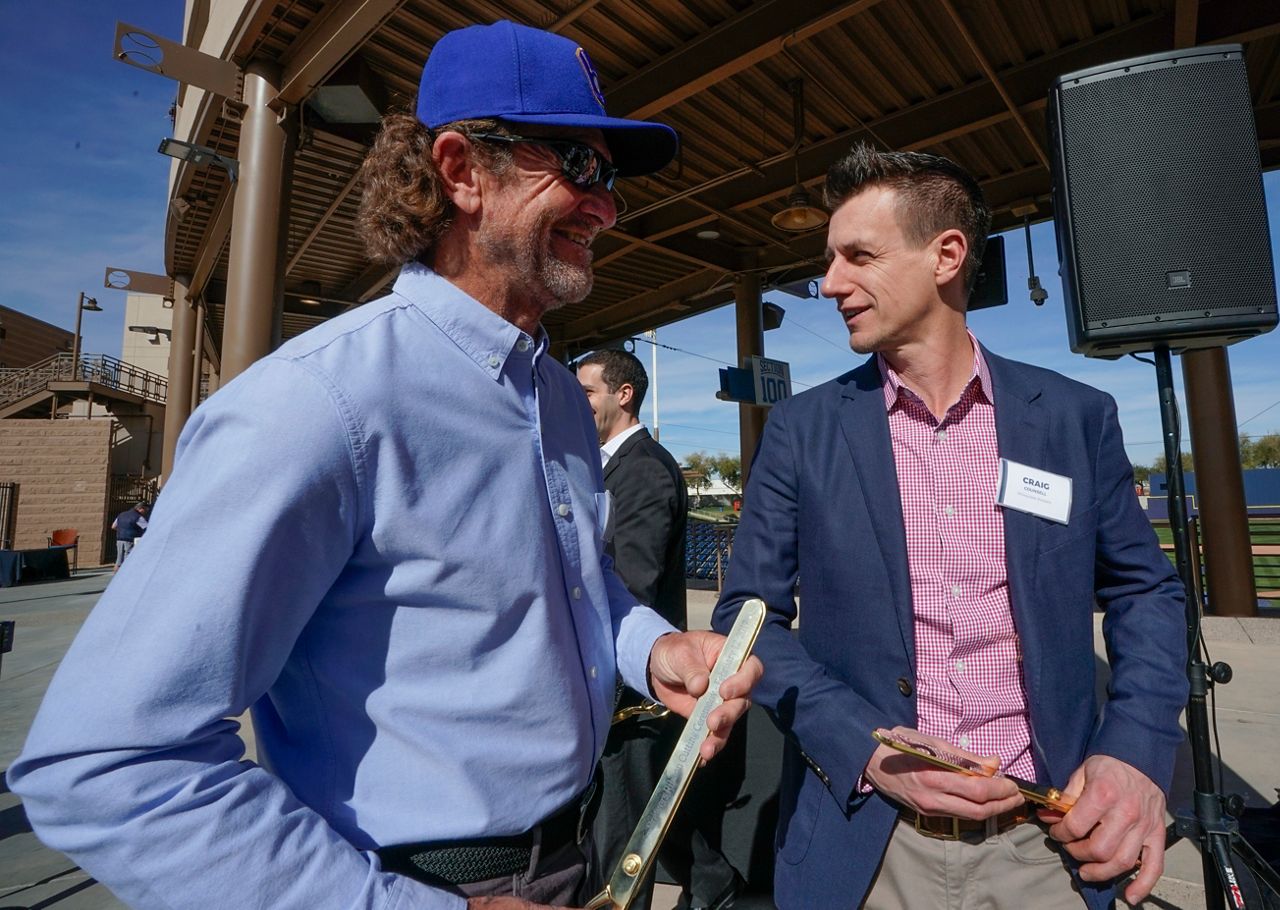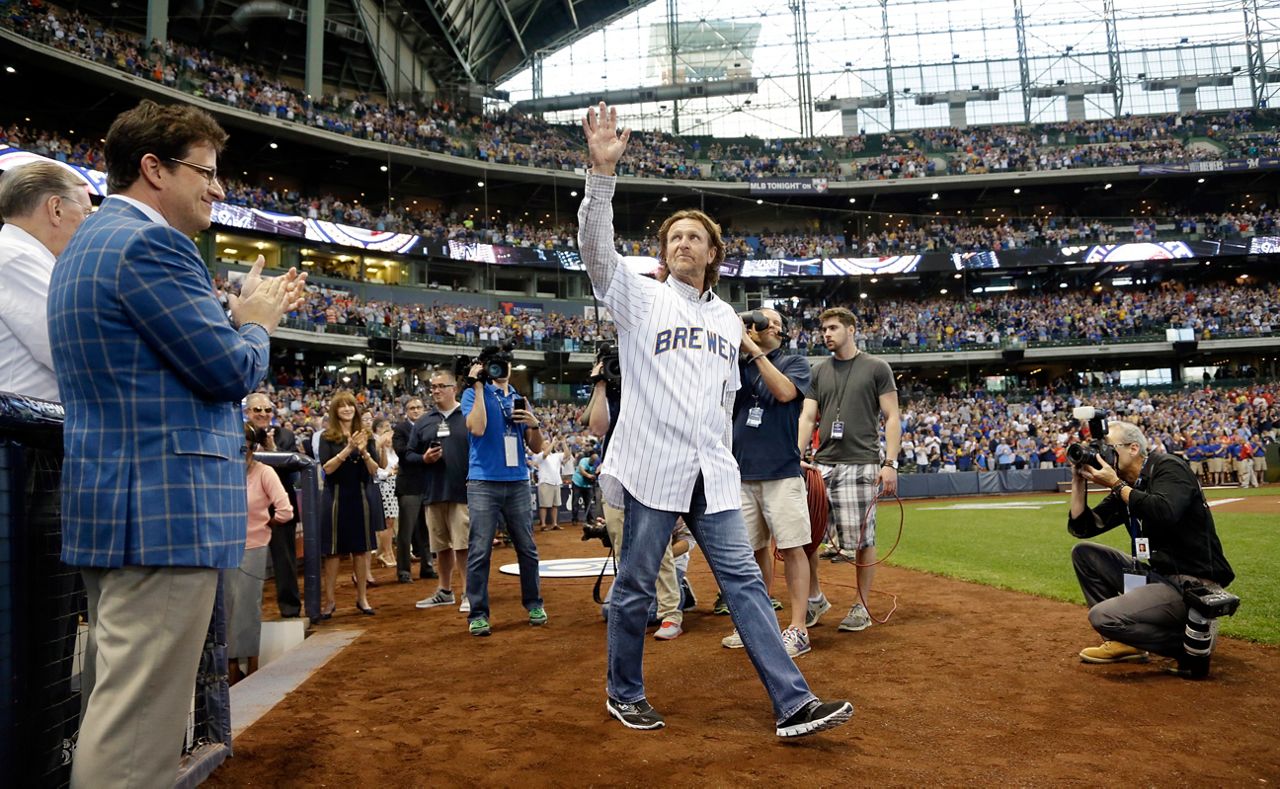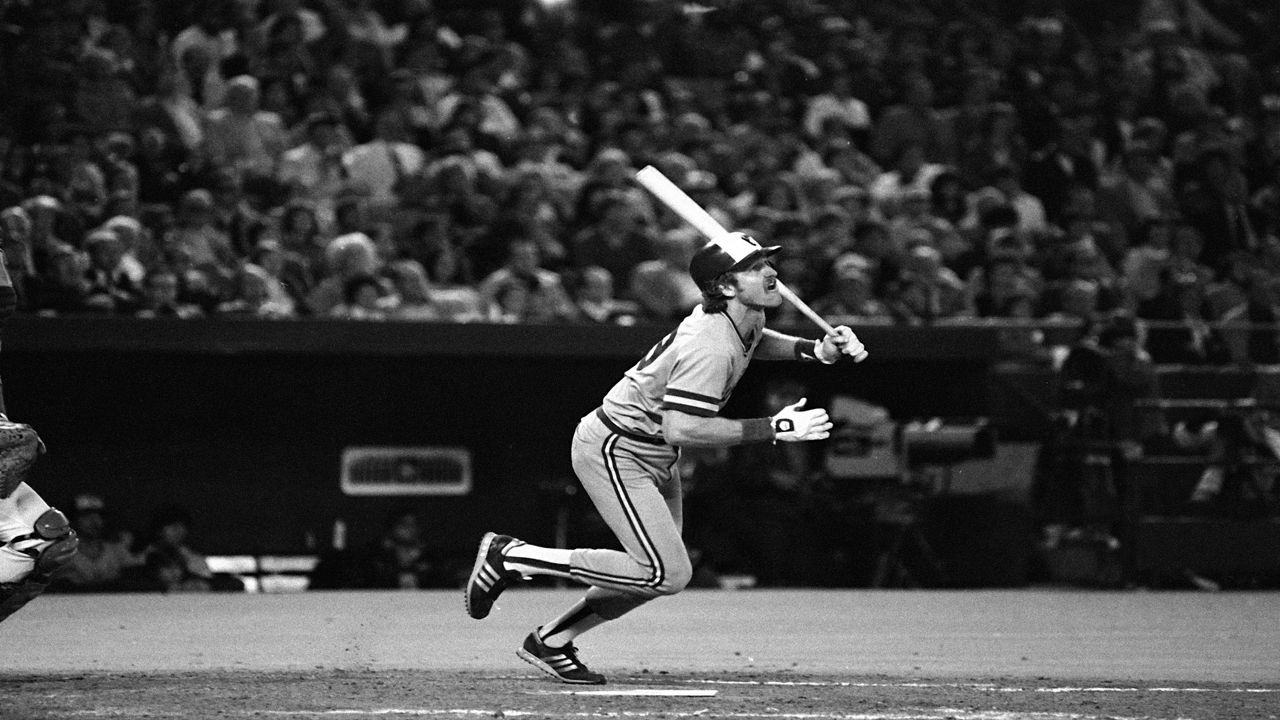He’s not a kid anymore. Robin Yount is 65. I know, hard to believe.
A recent video featuring the Hall of Famer Yount urging players to never forget the fans reminded me of a 2014 interview I did with him at Concordia University Wisconsin in Mequon. Yount doesn’t like to talk about himself so it was a rare opportunity set up by mutual friend Dean Rennicke. Here are some of the excerpts from that interview.
Q: When you talk to young players, what is your message?
A: I like to talk about attitude. The way the game should be played. Never leaving anything on the field. Put it all out there every time you play. Play each pitch like it may be your last. Work hard…I’ve always felt that if you give every single thing you’ve got into each pitch of every game, the results will be what they should be.
Q: Is it fair to say you never wanted to be on a track to be a manager?
A: I’d say so. I really enjoyed coaching. I had a great time (with the Brewers and Diamondbacks), but I have a lot of other interests that are non-baseball related, I guess I wasn't willing to spend the 24/7 that it takes in the game of baseball during the season, and in spring training leading up to it, to give up all those other things away from the field.

Q: What about broadcasting?
A: You gotta be able to talk (laughs). I’m a little shaky in that department. As long as I’m on with (Bob) Uecker once in a while, I can do an inning or two,
But that full-time gig, I don’t know that I’d be very good at that.
Q: Your relationship with Bob Uecker is special, isn’t it?
A: He’s one of my closest friends. There’s not a whole lot of people in this world like Bob Uecker. I’m so fortunate to know him really well. Been able to enjoy many, many experiences with him. I feel very lucky to be a friend of his.
Q: Do you remember the first time you came to Milwaukee?
A: I remember Opening Day in 1974. We stayed in the Marc Plaza. No time to do anything, I’m getting ready to play my first major league game.
(The day before) we go to County Stadium. I’ve never been to the ballpark. I remember going out on the field and looking up. I never played in professional ballparks, other than Rookie League fields. My first impression looking up, when I was going to take some ground balls (in the workout), was how big the stadium looked, compared to anything I’d ever played in. I do also remember, California kid going out to play baseball, and it was cold. I had never played baseball in cold weather. Those are the two things I remember.
Q: Do you ever wish that you put in more time in the minors?
A: No (laughs). I was perfectly happy to play in the major leagues. I wasn’t ready, I’ll be the first to admit. I was fortunate. I was in the right place at the right time. To give an 18-year-old kid with very little experience an opportunity to play in the major leagues, that was because I was a Milwaukee Brewer. At that time in the organization’s history, there were no expectations of winning. No one considered that yet. This team wasn’t ready to win, so why not throw an 18-year-old kid out there and see what happens? I happened to be that 18-year-old kid. In all honesty, it took me a couple of years to feel like I was a major league player.
Q: In those early years, who were the two or three guys that took you under their wing and really helped you?
A: Timmy Johnson. He was the starting shortstop before me. I took his spot. He became a utility infielder. He couldn’t have helped me more. That didn’t have to happen. He could have been angry that he lost his starting job to this young kid. He was always there to help me. Ed Sprague was a pitcher. He and I had a lot in common. He came to me early in spring training, kind of became almost like a big brother to me. We were very close. And then, my second and third years, when I’m 19 and 20, I got to play with Henry Aaron. I learned so much from Henry Aaron…just watching arguably the greatest player of all time go about his business, toward the end of his career. In front of a young, impressionable teenager, was huge. I watched a superstar treat everyone on the team just like anyone else. You would never have known that Henry Aaron in the clubhouse was any different than any one of us.
Q: In 1982, can you take us inside that Busch Stadium locker room after the Game 7 World Series loss in St. Louis? Did you assume you’d be back in the World Series?
A: I think everybody does. Immediately after, in the clubhouse, there were a lot of tears. You see grown men, sitting in front of their lockers, with tears coming down their face. Me being one. It was unbelievable. You spend your whole life playing this silly game with a goal of winning a World Series one day. To come that close and not pull it off, I mean, that hurt. The pain of that, emotionally, it was strong. I figured we would be back in the same position next year. As history knows, we never got back to a World Series. Goes to show you how difficult it is. As disappointed as we were after losing Game 7 of the World Series, it’s still the highlight of my career. I wouldn’t trade that pain. It was still the greatest couple of weeks of my entire career. If you think about that season…The last game of the regular season (in Baltimore), do-or-die game. We win that game. We lose the first two games to the California Angels in a best three-of-five (in the American League Championship Series). So now we have to win three do-or-die games. We win all three of those. We’d been in four do-or-die games. Game 7 of the World Series was our fifth do-or-die game in about two weeks. Five times, we were in a position where we had to win or go home. We won four of those. So, we had one heckuva year. But we just came up a couple innings short.
Q: You had a great World Series in 1982 (hitting .414). What allows certain people to excel in the postseason?
A: That’s a good question. I don’t have a real good answer for you. Sometimes, it’s luck. Sometimes, it’s being able to control your nerves. The pressure of the World Series, for me, felt less than the playoffs getting there. There was nowhere else to go after the World Series. You, as a player, want to play in a World Series so bad. What it takes to get there feels far more difficult. It’s so hard to get there. The games against the Angels, and the one just to get to the playoffs, were by far more pressure-filled.
Q: Who taught you to be humble? To act like you’re not a big deal, even though you are?
A: (Laughs) I am? It wasn’t taught to me. We’re all somewhat products of our parents. My dad was a quiet, unassuming, very strong man. My mother was kind of shy. It was the way I was brought up.

Q: You’re a perfect fit for Milwaukee.
A: It has certainly worked out…I’ve developed a love affair with this city. A lot of it is because of the way I’ve been treated by the fans, the people here in Wisconsin. Couldn’t have been nicer to me.
Q: How are you handling getting older?
A: My wife will verify that I feel like I’m 18, mentally. Physically, it’s catching up with me a little bit, but between the ears, I still try to do everything I’ve ever done…If I did the same thing every day, I’d get bored with it, no matter what it is. I have a few hobbies and I rotate ‘em. I love to ride motorcycles (as his legendary spin in County Stadium in 1982 showed.) Love to work on motorcycles. I love the outdoors. I’m a hunter and a fisherman. I love snow skiing.
I love every minute of it. I can’t sit still very long. I don’t stay indoors well.



